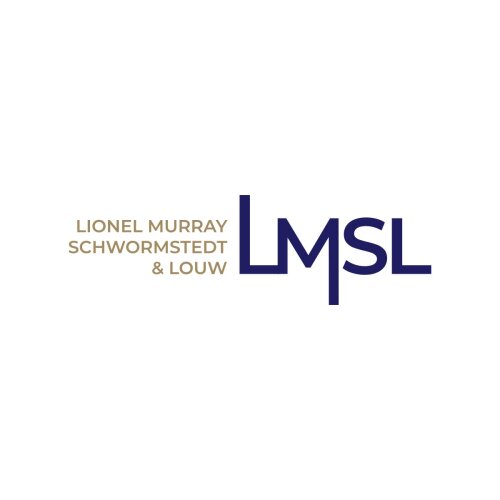Best Fintech Lawyers in Cape Town
Share your needs with us, get contacted by law firms.
Free. Takes 2 min.
List of the best lawyers in Cape Town, South Africa
About Fintech Law in Cape Town, South Africa:
Fintech, short for financial technology, is a rapidly growing industry in Cape Town, South Africa. It encompasses a wide range of technologies and innovations that are changing the way financial services are delivered and consumed. Fintech companies in Cape Town are revolutionizing banking, insurance, payments, and investments, among other financial services.
Why You May Need a Lawyer:
As the Fintech industry continues to evolve and innovate, legal issues and regulations become increasingly complex. You may need a lawyer in Cape Town for a variety of reasons, such as navigating licensing requirements, contract negotiations, data privacy compliance, intellectual property protection, and regulatory issues. A lawyer experienced in Fintech law can help you understand your rights and obligations, protect your interests, and ensure compliance with relevant laws and regulations.
Local Laws Overview:
In Cape Town, South Africa, Fintech companies are subject to a range of laws and regulations that govern their operations. Key aspects of local laws that are particularly relevant to Fintech in Cape Town include the Financial Sector Regulation Act, the Protection of Personal Information Act, the Electronic Communications and Transactions Act, and the National Credit Act. These laws address issues such as data protection, consumer rights, electronic transactions, financial stability, and fraud prevention.
Frequently Asked Questions:
1. What is Fintech?
Fintech refers to the use of technology to deliver financial services and products more efficiently and effectively.
2. Do Fintech companies need to be licensed in Cape Town?
Yes, certain Fintech activities may require licensing from regulatory authorities in Cape Town, depending on the nature of the services provided.
3. How can a lawyer help with Fintech compliance?
A Fintech lawyer can advise on regulatory requirements, draft compliant contracts and policies, conduct risk assessments, and represent your interests in dealings with regulators.
4. What are the key data privacy laws in Cape Town for Fintech companies?
The Protection of Personal Information Act (POPIA) sets out rules for the collection, storage, and processing of personal information by Fintech companies in Cape Town.
5. How can Fintech companies protect their intellectual property?
Fintech companies can protect their intellectual property through patents, trademarks, copyrights, and trade secrets, with the assistance of a lawyer.
6. What are the risks of non-compliance in Fintech?
Non-compliance with Fintech regulations in Cape Town can result in fines, penalties, reputational damage, and even legal action against the company and its executives.
7. Can a Fintech lawyer help with contract negotiations?
Yes, a Fintech lawyer can review, draft, and negotiate contracts with partners, vendors, customers, and investors to protect your interests and ensure compliance with relevant laws.
8. How can Fintech companies stay updated on regulatory changes?
Fintech companies can stay updated on regulatory changes by working with a lawyer who specializes in Fintech law, subscribing to industry newsletters, and participating in industry events and forums.
9. What is the role of regulators in overseeing Fintech activities in Cape Town?
Regulators in Cape Town, such as the Financial Sector Conduct Authority and the Information Regulator, oversee Fintech activities to ensure compliance with relevant laws and protect consumers.
10. How can I find a Fintech lawyer in Cape Town?
You can find a Fintech lawyer in Cape Town by asking for recommendations from colleagues, researching online directories, or contacting the Cape Town Law Society for referrals.
Additional Resources:
For more information on Fintech laws and regulations in Cape Town, you can visit the Financial Sector Conduct Authority (FSCA) website, the Information Regulator website, and the South African Reserve Bank website. These resources provide valuable insights into the legal framework governing Fintech activities in Cape Town.
Next Steps:
If you require legal assistance with Fintech issues in Cape Town, it is advisable to consult with a qualified Fintech lawyer who can offer tailored advice and representation. Consider scheduling a consultation to discuss your specific needs and explore your options for legal assistance in the rapidly evolving Fintech industry.
Lawzana helps you find the best lawyers and law firms in Cape Town through a curated and pre-screened list of qualified legal professionals. Our platform offers rankings and detailed profiles of attorneys and law firms, allowing you to compare based on practice areas, including Fintech, experience, and client feedback.
Each profile includes a description of the firm's areas of practice, client reviews, team members and partners, year of establishment, spoken languages, office locations, contact information, social media presence, and any published articles or resources. Most firms on our platform speak English and are experienced in both local and international legal matters.
Get a quote from top-rated law firms in Cape Town, South Africa — quickly, securely, and without unnecessary hassle.
Disclaimer:
The information provided on this page is for general informational purposes only and does not constitute legal advice. While we strive to ensure the accuracy and relevance of the content, legal information may change over time, and interpretations of the law can vary. You should always consult with a qualified legal professional for advice specific to your situation.
We disclaim all liability for actions taken or not taken based on the content of this page. If you believe any information is incorrect or outdated, please contact us, and we will review and update it where appropriate.









